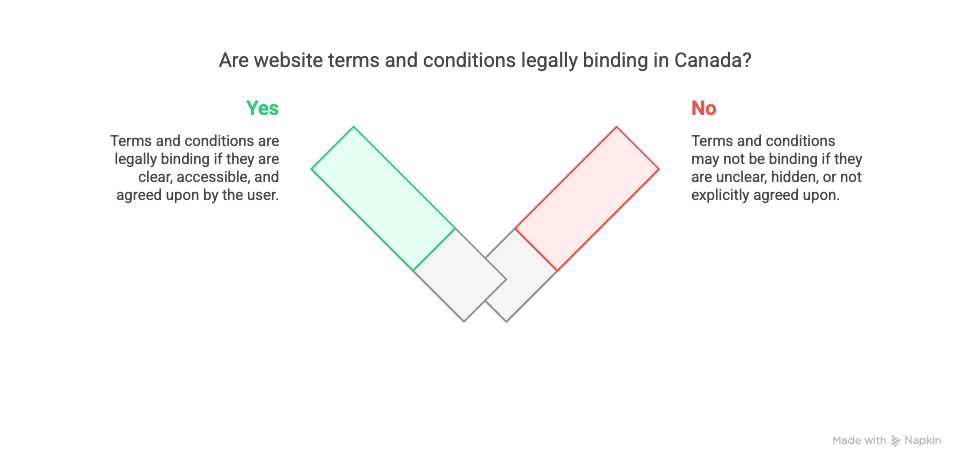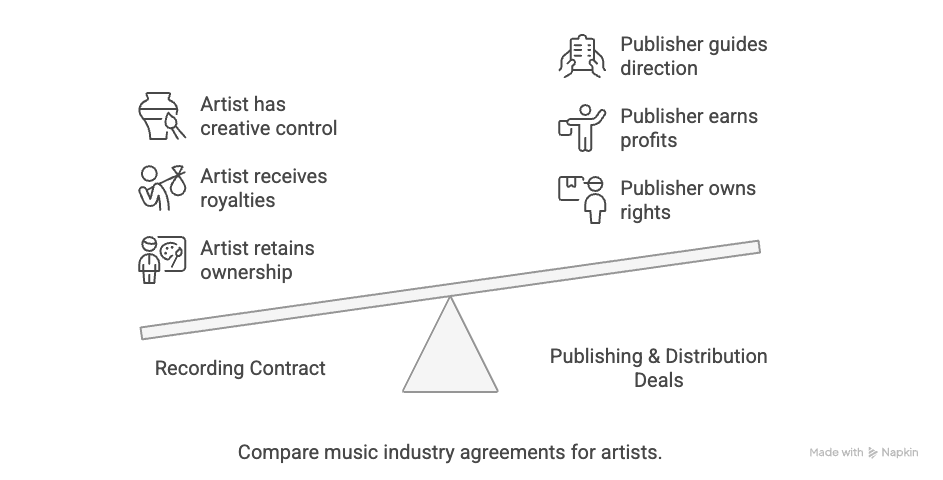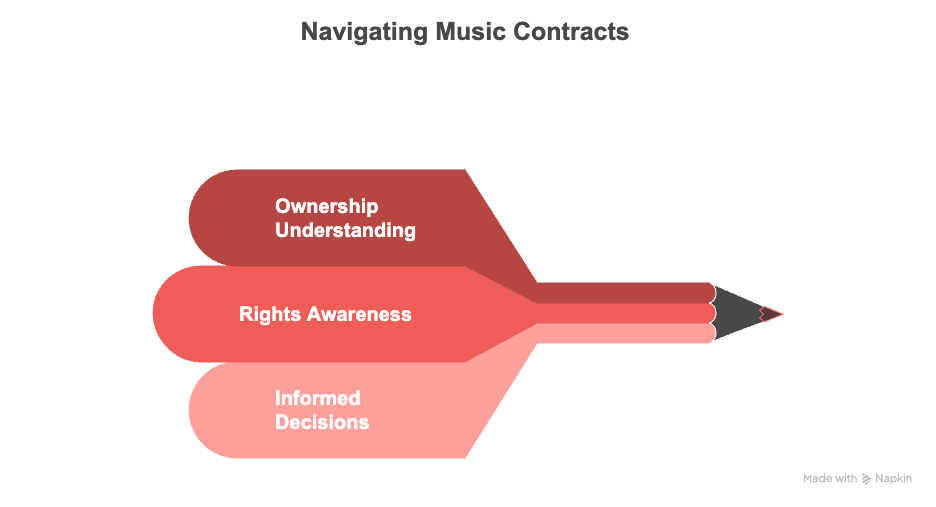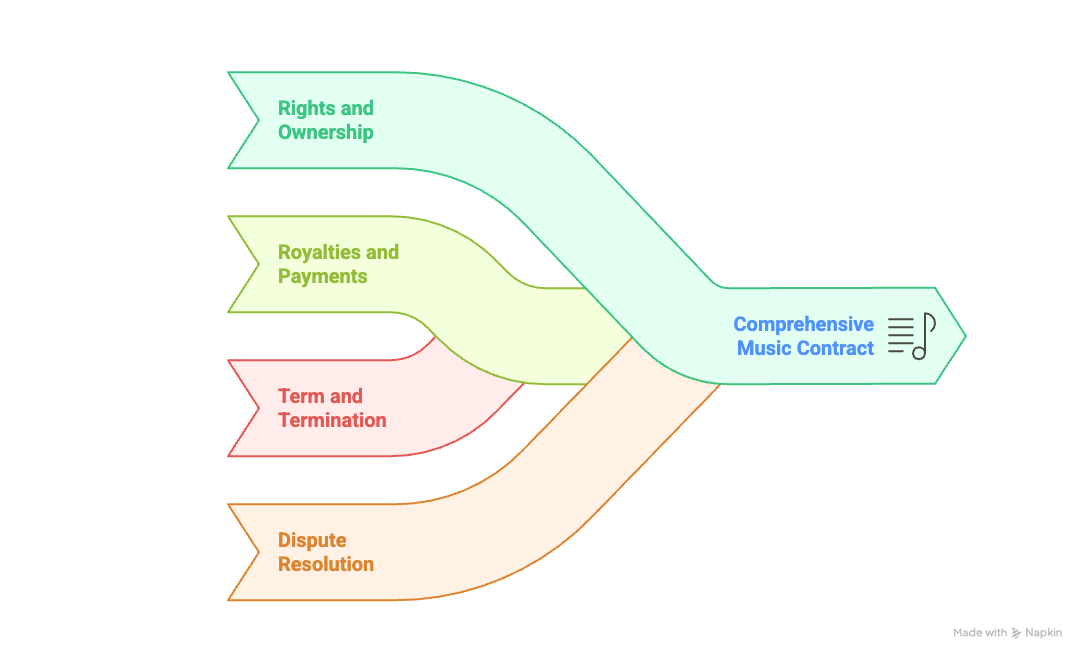
Are Website Terms And Conditions Legally Binding In Canada?
Last Updated on May 10, 2025
Website Terms and Conditions often sit quietly in a footer, but they play a powerful legal role — when drafted and implemented properly. If you’re asking whether these agreements are enforceable in Canada, the short answer is: yes, but only if certain conditions are met.
This guide explains how to make your website’s Terms and Conditions legally binding, what makes a T&C enforceable, and how Canadian courts evaluate these policies.
When Are Terms and Conditions Legally Binding?
In Canadian law, a contract is valid when there is:
- Offer and acceptance
- Mutual intent to create legal relations
- Consideration (e.g., access to the site or services)
If your Terms and Conditions meet these elements - and the user agrees to them - they are likely enforceable.
Clickwrap vs Browsewrap: Why Consent Matters
Clickwrap agreements require users to actively agree to your terms (e.g., ticking a checkbox). Courts overwhelmingly favor this method because it clearly proves user consent.
Browsewrap agreements simply place a link in the footer and assume acceptance by use. These are far less enforceable because users may never see or knowingly accept them.
Tip: Always use clickwrap at checkout, signup, or registration forms.
What Makes Terms and Conditions Enforceable in Canada?
To be legally binding, your Terms and Conditions should:
- Be presented clearly and accessibly (e.g., via link + checkbox)
- Use plain language users can understand
- Be available before or during registration, not hidden afterward
- Include key clauses: liability, user conduct, jurisdiction, etc.
- Be tailored to your platform’s actual risks and structure
Failing to meet these standards weakens enforceability and leaves your business exposed. For example, terms that are buried in dense legalese or hidden post-registration have been rejected by Canadian courts for lack of clear user consent.
Are Terms and Conditions Required by Law?
No, but they are strongly recommended. Without them, it’s harder to:
- Define acceptable use
- Limit your liability
- Resolve disputes efficiently
- Terminate abusive users
Terms and Conditions become your first line of legal defense.
They also demonstrate your website’s professionalism and commitment to user clarity — which can improve trust and reduce complaints. For businesses processing payments, publishing content, or offering community features, T&Cs are considered best practice.
Use Case Scenarios Where Enforceability Matters
- eCommerce Transactions: A refund policy inside a T&C helps avoid chargebacks and disputes.
- User-Generated Content: A conduct clause allows you to moderate or remove inappropriate content legally.
- Subscription Platforms: Renewal and billing clauses help enforce payment terms.
- SaaS Tools: Service availability, support limits, and data disclaimers protect you from performance liability.
Final Word
If you want your Terms and Conditions to stand up in court, don’t just copy-paste them. Use clickwrap, write in plain English, and make them specific to your business. When used properly, your T&Cs act as a digital contract that protects your rights and defines your obligations.
Need help? Download our free Canadian-compliant Terms and Conditions template.
Download the Free Website Terms And Conditions Template
Ready to apply what you've learned? Get instant access to the Website Terms And Conditions PDF - free, editable, and built for Canadian businesses. No sign-up required.
Frequently Asked Questions
Answers to common questions about Are Website Terms And Conditions Legally Binding In Canada?.
Are Terms and Conditions enforceable in small claims court?
Yes - especially if clickwrap was used to prove acceptance. Many digital disputes are settled under provincial small claims rules.
What’s the most common reason Terms and Conditions are not enforced?
Lack of user consent. If users weren’t required to actively agree (e.g., via checkbox), courts may dismiss the terms.
Do I need separate Terms for my mobile app and website?
Yes, if your platforms have different features, user interactions, or payment systems. Tailoring terms improves enforceability.
Can a business be sued for having unfair Terms and Conditions?
Potentially. Unconscionable or one-sided clauses (especially around refunds or liability) may be struck down under consumer protection laws.
Is a Terms and Conditions generator safe to use?
Only if it’s localized for Canadian law. Many generators are U.S.-centric and miss key clauses for Canadian businesses.
Explore More in Creative Digital Contracts
Discover curated templates in Creative Digital Contracts to help your business stay compliant and efficient.


